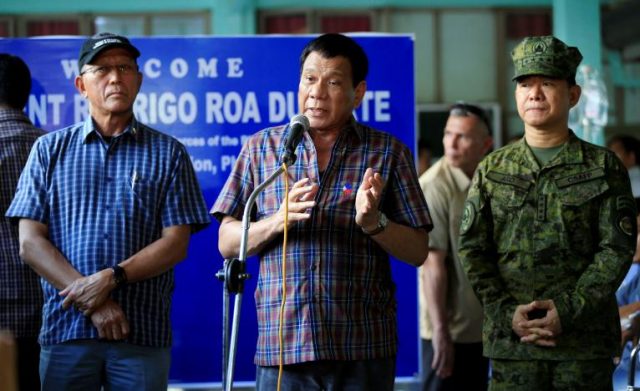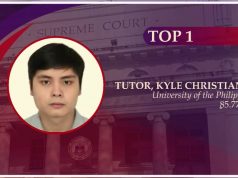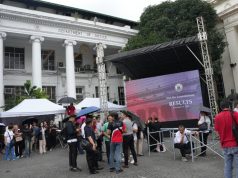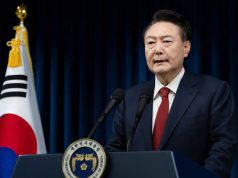
MANILA, Philippines — The Supreme Court has ordered Defense Secretary Delfin Lorenzana and Armed Forces chief General Eduardo Año to appear before it on Thursday, the third day of oral arguments on three petitions seeking to nullify Proclamation No. 216 placing the whole of Mindanao under martial law.
Lorenzana is the administrator and Año the implementor of martial law in the south, which President Rodrigo Duterte declared soon after hostilities broke out between government forces and extremist gunmen on May 23.
Their presence was ordered by Chief Justice Maria Lourdes Sereno on the request of Albay Edcel Lagman, who represents opposition members of the House of Representatives who filed one of three petitions asking for the nullification of the martial law proclamation.
Also on the second day of oral arguments, Sereno and Senior Associate Justice Antonio Carpio grilled Solicitor General Jose Calida, who represents the government, on the distinction between the President’s “calling-out” powers in the Constitution and his power to declare martial law.
Calida initially balked at the order to bring to court the two top security officials, saying he did not see the purpose of requiring Lorenzana and Año to appear.
Calida eventually agreed to present the officials but asked that any presentations they make be in executive session, which Lagma objected to, saying that during the closed-door briefing on martial law given to the House, no classified information was divulged.
The matter of executive session will be decided Thursday.
Sereno also ordered Calida to submit all operational order and guidelines related to martial law.
Calling-out, ML powers
Meanwhile, Calida found himself schooled on the difference between the President’s power to declare Martial Law and his power to call out the AFP to prevent or suppress lawless violence, invasion, or rebellion.
Martial Law powers are like “calling-out (powers) on steroids,” Calida replied, when grilled by Sereno and Justice Antonio Carpio about the matter.
Finally, Justice Teresita Leonardo-De Castro took it upon herself to make the distinction.
“In the calling-out powers, this is more military in nature. It allows only the President to call the Armed Forces to take military measures or to take military action against certain groups. But in the case of the Martial Law powers of the President, the AFP is not only to be engaged in combat operation, but the AFP is engaged in the general maintenance of peace and order. That is why there is a requirement in the Constitution that there must be a need for public safety. Which means that the AFP will be doing the function of ordinary peace officers in the community. So they will not only engage in military combat, which is what is called for in the power of the president to call the Armed Forces of the Philippines to suppress lawless violence, invasion, or rebellion.”
Sereno asked Calida why the declaration of Martial Law was necessary, when the calling-out powers were there.
The Solicitor General answered that it was Duterte’s judgment call.
For his part, Carpio asked whether a Maute armed fighter could be arrested for rebellion even if he had gotten rid of his gun and escaped from Marawi City.
Calida replied in the affirmative, saying that the crime of rebellion was a “continuing offense”, and therefore the Maute fighter could be captured.
But, said Carpio, the arrest would not be due to the declaration of Martial Law. The arrest could be made even without Martial Law.
Calida nevertheless assured the Supreme Court Justices that they need not worry about Duterte’s Martial Law declaration because he was not former President Ferdinand Marcos, under whose regime thosands of summary killings, enforced disappearances, and instances of torture occurred.









